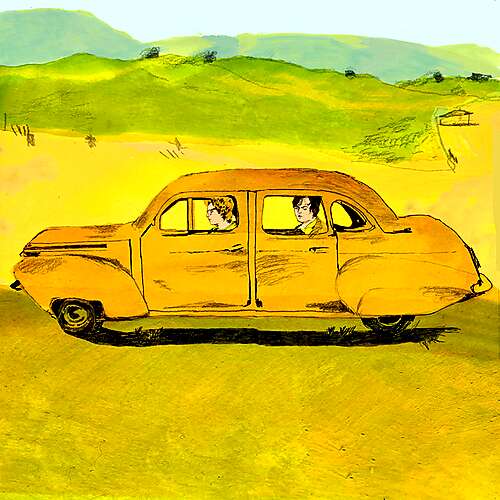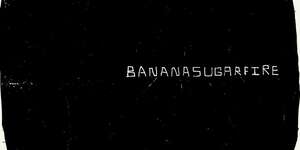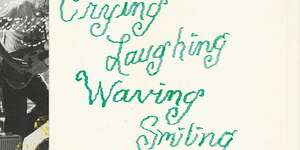Mo Troper
Mo Troper
[ he/him ]
city: Portlandcountry: Oregon, USA
genre: Indie
styles: Bedroom Pop, Indie Pop, Power Pop, Jangle Pop, Lo-Fi, Shoegaze

Troper Sings Brion
 LP
LP
Spotify Bandcamp Soundcloud
Reviews and Comments
Buried somewhere on YouTube is an interview with Jon Brion in which the cultishly celebrated producer, composer, and songwriter distinguishes between two types of pop music: songs and performance pieces. “You could play a Gershwin song in the style of Led Zeppelin and have a completely satisfying experience,” Brion explains, “but when you start playing Zeppelin songs in the style of 1920s music, suddenly it’s laid bare that [Zeppelin] is about those people [together] in a room.” It’s an elegant thought experiment that fans of Brion’s will likely find gratifying to hear from his mouth because it describes exactly the kind of songs that he’s both made his living producing for others and spent his spare time penning himself: songs with a combination of chords, melody, and lyrics that stand on their own; songs that could be performed in any number of styles without their potency diminished. In other words, songs worth covering.
These are also the kinds of songs that Portland, Oregon power pop maestro Mo Troper loves, which is why, when he’s not busy churning out should-be classics that are as blown-out as they are Gershwin-esque, he’s made a habit of recording covers. 2021’s full album cover of the Beatles’ Revolver is merely the most notable recent example of an interest that Troper’s fans have been happy to hear him indulge since his early band Your Rival reimagined Beyonce’s “Irreplaceable” as a Pinkerton outtake back in 2014. Troper is also a massive Brion fan, so it’s fitting that his newest release is an extraordinary full-length record’s worth of Jon Brion covers entitled, of course, Troper Sings Brion.
Though you’d be forgiven for suggesting it was inevitable, Troper Sings Brion was actually a recent idea, sprouting from conversations in early 2023 with Lame-O label head Eric Osman about a hypothetical reissue imprint. True to form, the concept was obsessive fandom and self-mythology wrapped into one: “I told Eric, ‘Hey, you should release these Jon Brion demos’—like half-seriously,” Troper jokes, “and then a few months later I was like ‘Wait, maybe I should release these Jon Brion demos.’”
During the same period, Troper had been reading about the pre-internet fan culture surrounding SMiLE, the lost Beach Boys opus famously abandoned in 1967. “There was just this huge enthusiast community,” he says. “Lots of underground musicians who would eventually become famous curated SMiLE newsletters and would submit their ideal sequencing and stuff. It was the first interactive album.” Eventually, Troper found an interview where another of his musical icons, Elvis Costello, admitted he considered recording his own version of SMiLE. “That to me was really inspiring,” Troper explains. “I was like ‘Maybe I should approach these Jon Brion demos like that, because no one else is going to do anything with them.’”
The gears now turning, details like the tracklisting and the Nilsson Sings Newman-inspired title and art came into focus before a single note was put to tape. “There was a lot of fantasizing about it,” Troper laughs. The idea was to only choose songs that Brion had never officially released: songs “that make me say ‘Fuck, I want to hear the real version of this because it’s as good as anything on Meaningless,’” explains Troper, referring to Brion’s beloved lone solo album from 2001, remastered and finally released on streaming last year.
Most of the songs covered on Troper Sings Brion appear on a two-disc compilation of Brion’s demos from 1991-1995 that was initially passed around on unofficial fan forums before winding up on YouTube. Live bootlegs of Brion abound online, but for most diehards, the demos comp is canon. And like any fan, Troper respects canon: His arrangements tend not to reinvent the wheel but rather to emphasize the best parts of the demos, pulling them out from under their opaque veneer of reverb and often gaining out the guitars in the process. “Maybe this sounds arrogant, but I wanted to hear a version of Citgo Sign that rocks,” says Troper; clearly he had the same feeling about songs like “Any Other Way” and “Not Ready Yet.” If SMiLE was Brian Wilson’s “teenage symphony to God,” this is Troper’s adult symphony to tape saturation.
That’s not to say this approach made the recording a breeze. One trademark of Brion’s “unpopular pop” is his ability to launder heady harmonic choices through hook-laden melodic earworms, and learning those unusual parts from muddy demos was anything but straightforward. “It did really test me,” Troper admits. “I feel pretty good about my ear and my ability to work out pop songs, but learning this stuff I was like ‘Oh no, this is like Django Reinhart or something.’”
Nowhere does his hard work pay off more clearly than on “Into the Atlantic” and “Love Of My Life (So Far),” the only two tracks that don’t appear on that celebrated fan compilation, and which Troper arranged from scratch with only stripped-down live bootlegs as inspiration. “Atlantic” sets the tone early for an album as full of analog ear candy as it is impeccable pop songcraft. Troper adorns Brion’s send-up of music industry bottom-feeders—“treasure hunters armed with their tools”—with his own selection of studio tools and treasures, exploding the song into the Mellotron-laden, baroque pop epic it deserves to be. On the other hand, he transforms “Love Of My Life” into a frenetic celebration of counterpoint and varispeed that’s perhaps the most streamlined two minutes of pop bliss on the album. Like so many of Troper’s best songs, it only seems simple because he doesn’t bother giving you time to realize it isn’t.
The lone exception to Troper’s self-imposed edict of no official releases is “No One Can Hurt Me,” a song he considered too brilliant not to include. While it does appear on the YouTube demos compilation, Brion also released a studio version with the Grays, his short-lived not-particularly-super group with Jellyfish guitarist Jason Falkner and future Aimee Mann sideman Buddy Judge. In Troper’s hands, “No One Can Hurt Me” becomes quite literally the exception that proves the rule. While he says that “the demos comp version, to me, is definitive,” his rendering fuses the best qualities of both. It confidently evolves towards the rock muscle of the Grays, thanks to blistering guitars and the crunchy, tape-saturated drum sound that’s become Troper’s signature. But the decision to build the song around a dusty drum break sampled from an Optigan—an early 70s keyboard that Troper suspects Brion himself has likely used on film scores—grounds the track in the slightly ramshackle, hypnotic pulse of Brion’s demo as well as in the broader sonic world that has endeared both Brion’s solo output and his production work to admirers and obsessives. It’s a brilliant production choice to match the brilliance of the song; the typically searing vocal performance cements the track as one of Troper’s best recordings yet.
That relationship between song and performance is sometimes uneasy. “One of the very things I love, recording,” suggests Brion in that buried YouTube interview, “has killed people’s ability to hear songs purely as chord change, melody, and lyric.” He’s pointing to a contradiction between abstract and concrete, between idea and document, that in a way echoes the tension heard in the truncated version of “Heart of Dysfunction” that opens Troper Sings Brion: “There’s a carrot on the table / I’m so starved I’m getting sick / I should eat but I’m just not able / to recognize it when it’s not dangling on the end of a stick.” Something like that tension animates so many of Brion’s most striking turns of phrase; you might say it animates the entire career of this notorious perfectionist who, since Meaningless, has only been able to finish other people’s recordings. This studio recluse who most adores songs that are so perfect in their fundamental elements, they seemingly don’t even require a singular, canonized recording—it’s no surprise that, like Brian Wilson before him, Jon Brion has instead given us a wonderfully malleable and modular catalog of great, unreleased American pop songs.
Who better to introduce those songs to a wider audience than Mo Troper? He might be the only Jon Brion fan with both the audacity to attempt something like Troper Sings Brion and the studious reverence to actually pull it off. He might just be the first. Either way, for fans of the pop tradition that both Troper and Brion have mined so successfully, these 11 covers are sure to form their own canon.
latest releases
 LP
LP
Svengali
out on May 01, 2024
 Single
Single
The Billy Joel Fan Club
out on February 27, 2024
via Lame-O Records
 Single
Single
Citgo Sign
out on November 13, 2023
via Lame-O Records
 Single
Single
For You To Sing
out on April 17, 2023
via Lame-O Records
 Single
Single
I Am The Cosmos (Chris Bell of Big Star cover)
out on December 27, 2022
via Lame-O Records
 LP
LP
MTV
out on September 02, 2022
via Lame-O Records



















